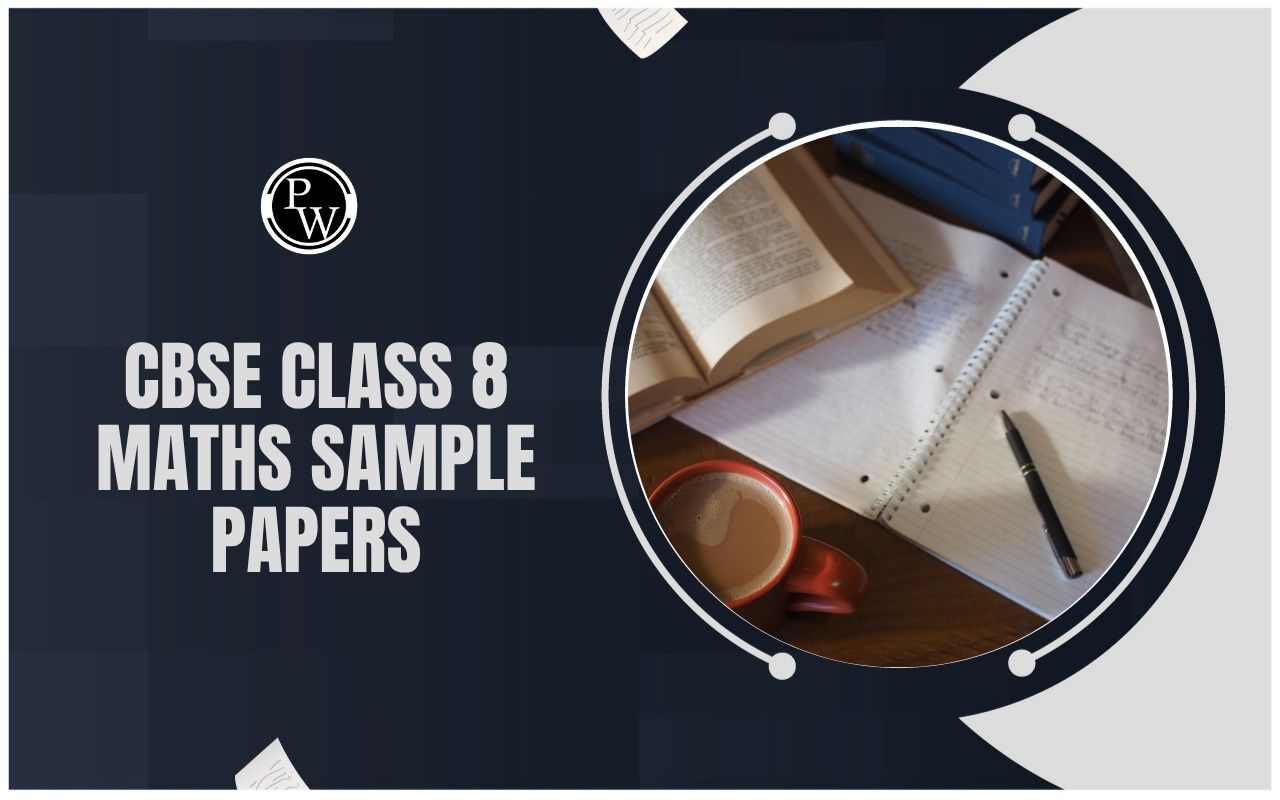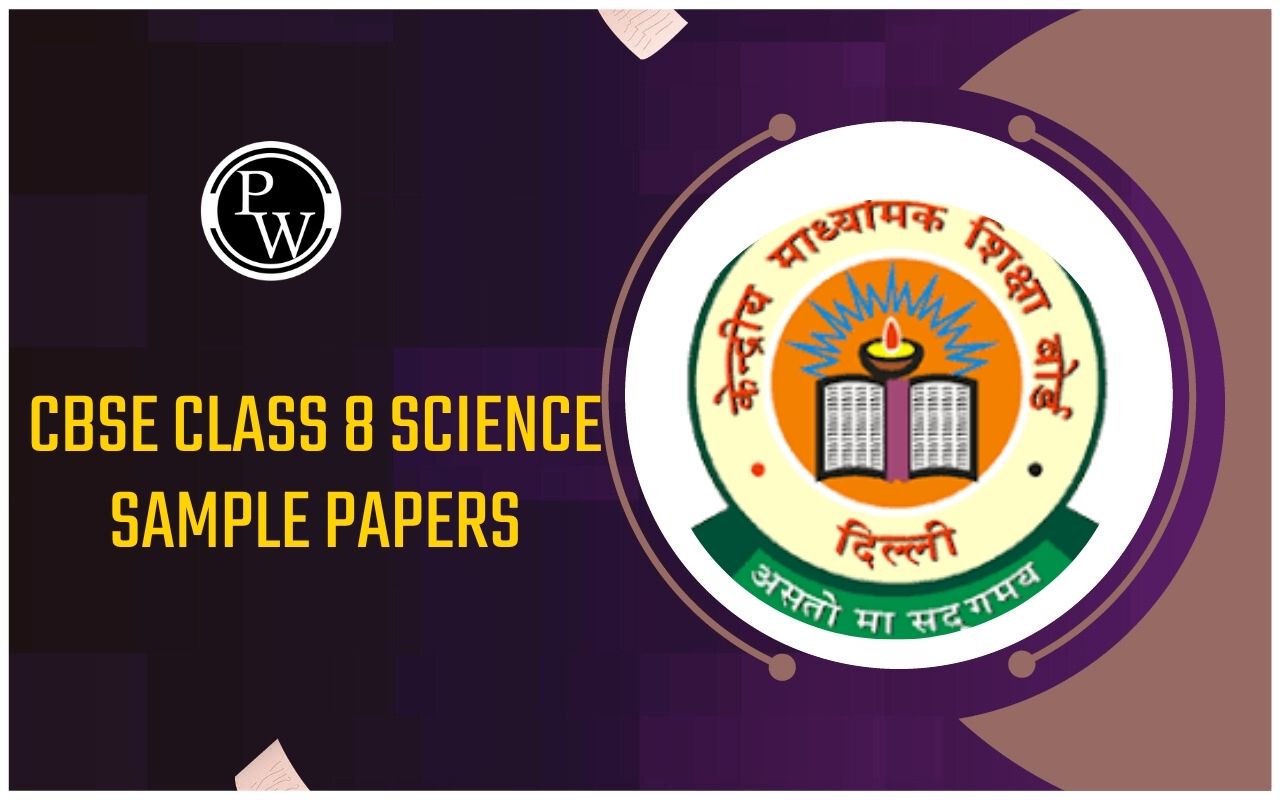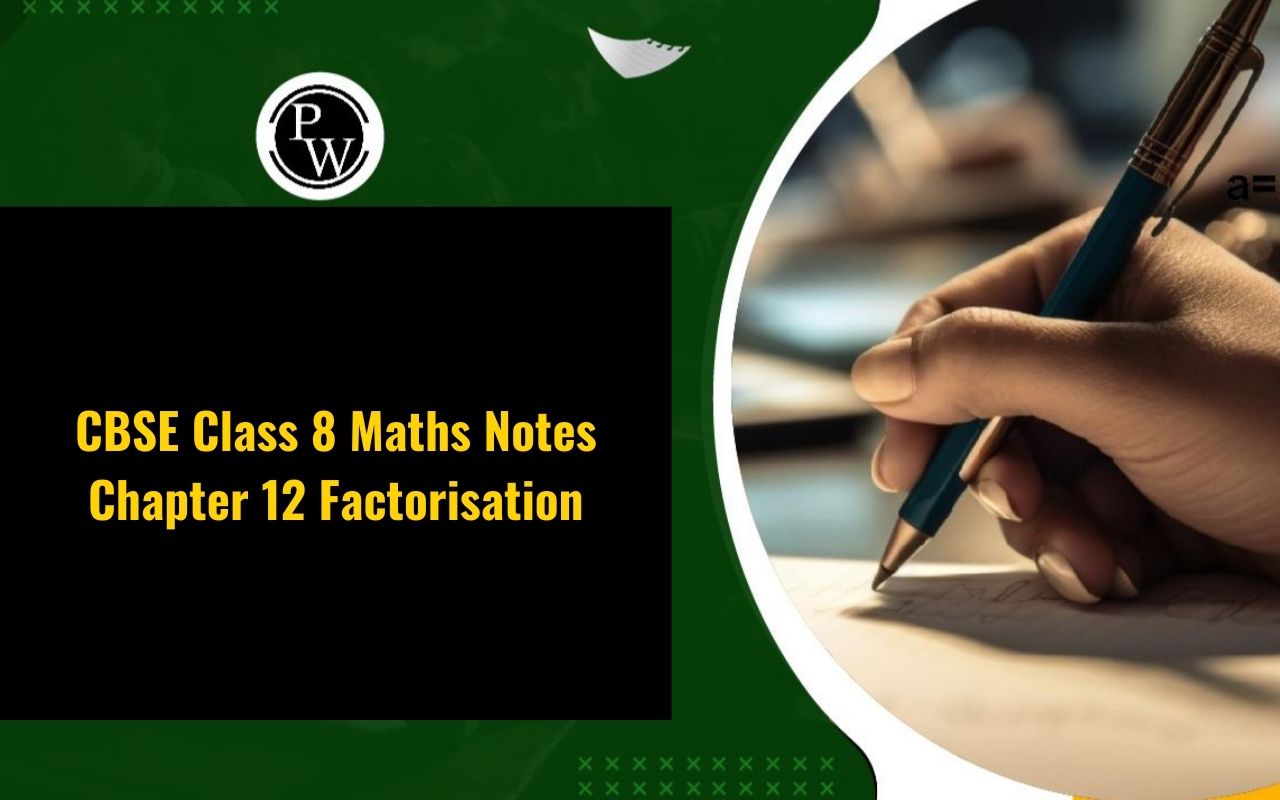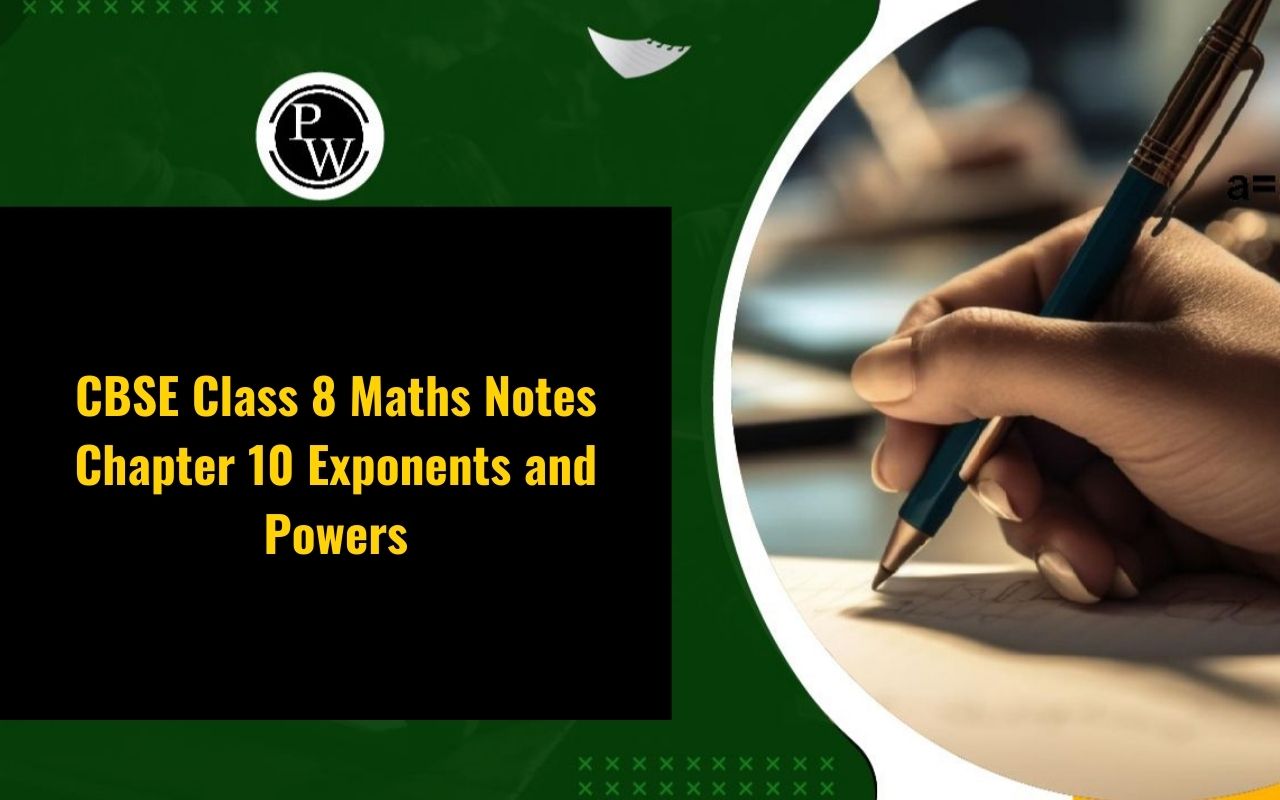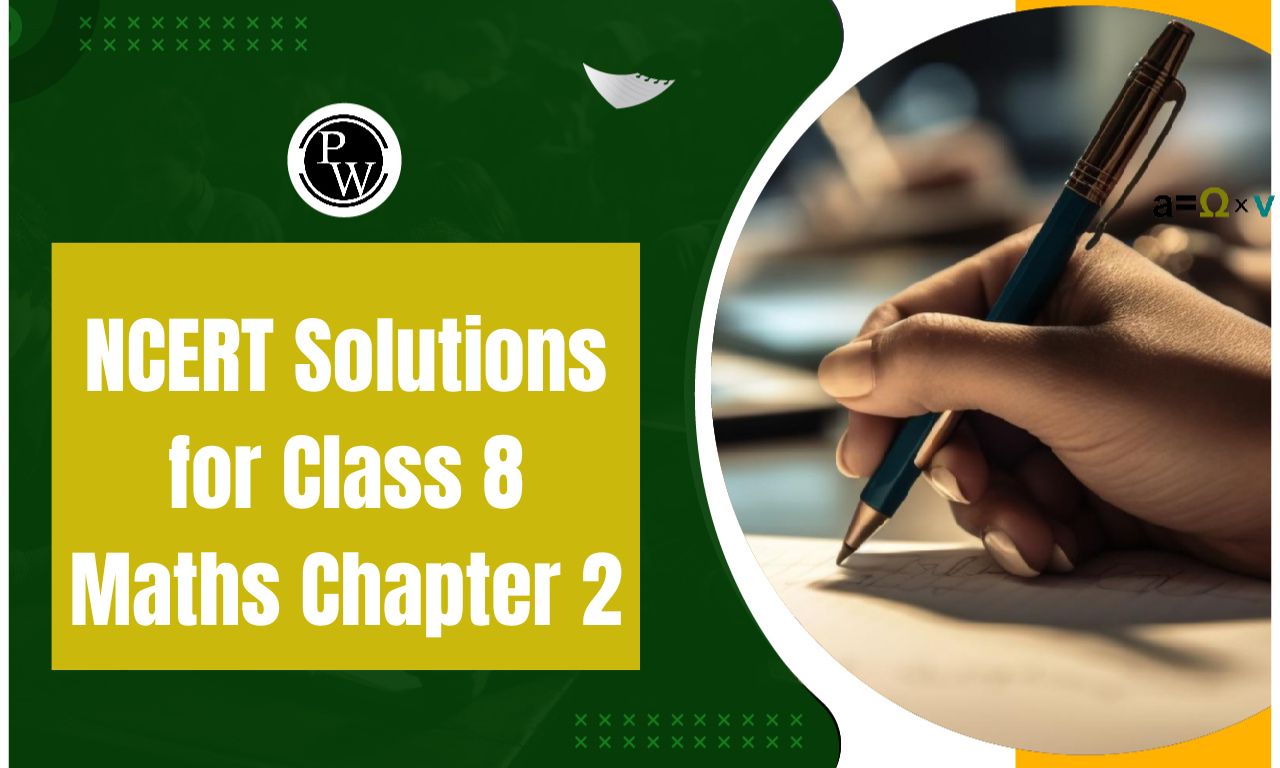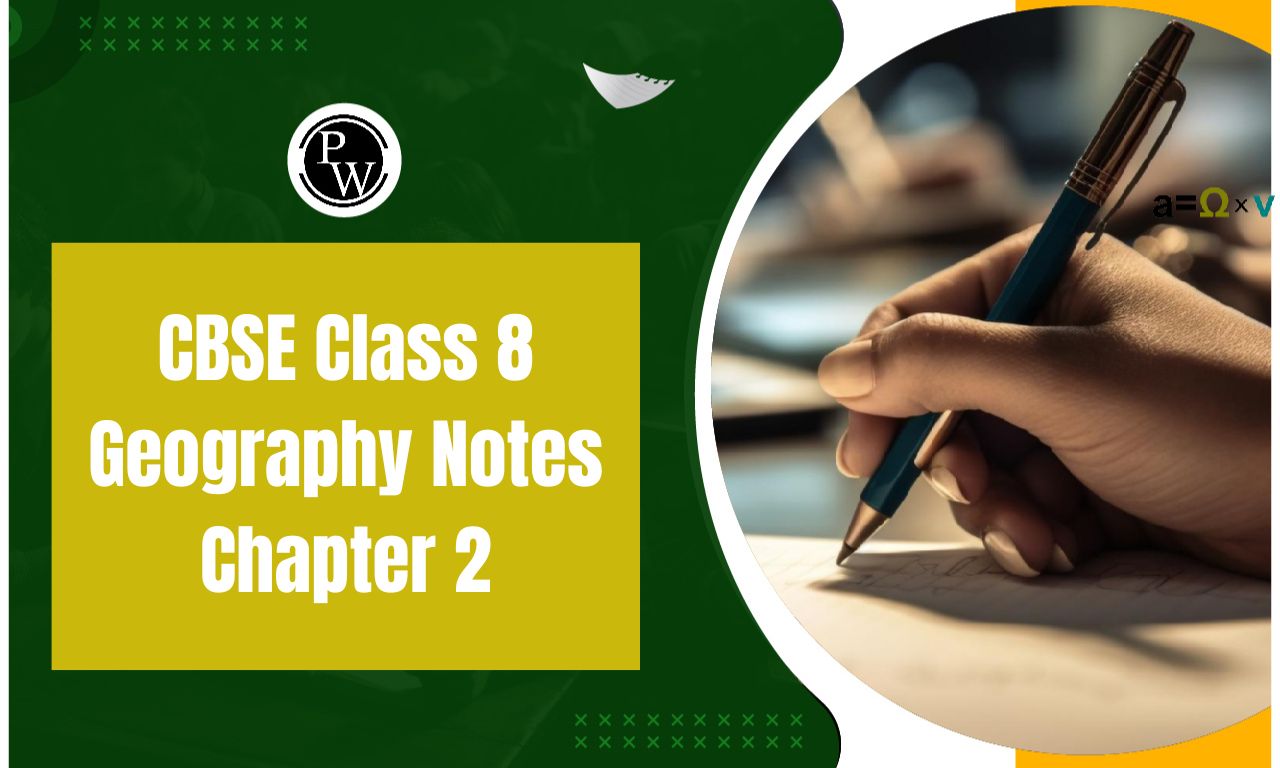
CBSE Class 8 Civics Notes Chapter 3: In CBSE Class 8 Civics Chapter 3 Why Do We Need a Parliament? you'll learn how the Parliament of India empowers citizens to actively participate in decision-making and oversee the functioning of the government.
As a central institution in Indian democracy, Parliament embodies the core values and principles outlined in the Constitution. Studying this chapter will give you a deeper understanding of how Parliament operates, its significance in a democratic system and the important role it plays in representing the will of the people. These notes are also a valuable resource for revising key concepts before exams.CBSE Class 8 Civics Notes Chapter 3 Why Do We Need a Parliament? Overview
These notes are prepared by subject experts of Physics Wallah provide a detailed overview of CBSE Class 8 Civics Chapter 3 Why Do We Need a Parliament? By understanding the structure and functions of Parliament students will gain insight into its role as the cornerstone of Indian democracy. These notes are designed to simplify complex concepts and help students grasp the key points effectively.CBSE Class 8 Civics Notes Chapter 3 PDF
The PDF link for CBSE Class 8 Civics Notes Chapter 3 Why Do We Need a Parliament? is available below. With clear explanations and concise summaries this PDF is a valuable resource for revision and exam preparation.CBSE Class 8 Civics Notes Chapter 3 Why Do We Need a Parliament? PDF
CBSE Class 8 Civics Notes Chapter 3 Why Do We Need a Parliament?
Here are the notes which are crucial for CBSE Class 8 Civics Chapter 3, "Why Do We Need a Parliament? . This chapter explain the significance of the Parliament in a democratic framework, emphasizing its role in representing the people's voice, making laws, and overseeing the government's actions. The Parliament is fundamental to democratic governance as it ensures that citizens can participate in decision-making through their elected representatives. By studying these notes students gain a detailed understanding of how Parliament functions, including its role in forming the government, controlling and guiding it, and the essential process of law-making. This chapter also highlights the diverse backgrounds of Parliament members and the mechanisms in place to ensure accountability and effective governanceWhy Should People Decide?
In a democratic country, it is important that people have the power to decide because their involvement is the foundation of democracy. A democratic government is governed by the consent and participation of its citizens, making them an integral part of the system. Through elections, citizens choose representatives who voice their collective opinions and make decisions on their behalf in the Parliament. This ensures that the government reflects the will of the people, maintaining the democratic principle of governance by the people, for the people.The Role of the Parliament
The Indian Parliament plays a important role as it embodies the faith of the people in the democratic principles of the nation. As the representative of the people, Parliament holds immense power within the Indian system. Elections for Parliament, like those for the state legislatures, are conducted with the utmost importance. The Lok Sabha, the lower house of Parliament, is elected every five years, ensuring that the government remains accountable to the people and continues to reflect their will through their elected representatives.Functions of Parliament
The functions of the Parliament in India are crucial for the governance and democratic functioning of the country. Here are the primary functions:To Select the National Government :
- The Parliament plays a key role in the formation of the national government. The Lok Sabha, the lower house, elects its members through general elections. The political party or coalition with the majority forms the government, and the leader of this majority is appointed as the Prime Minister. The Rajya Sabha represents the states and reviews and revises the laws proposed by the Lok Sabha.
To Control, Guide, and Inform the Government :
- The Parliament monitors the government's functioning through various mechanisms, including the question hour, where MPs ask questions to the government about its policies and actions. This ensures transparency and accountability. Parliament also approves the government's financial decisions, thereby controlling how public money is spent.
Law-Making :
- One of the Parliament's most significant roles is to make laws. Proposed laws, or bills, are debated, amended, and voted upon in both houses of Parliament. Once approved by both the Lok Sabha and the Rajya Sabha, and after receiving the President's assent, a bill becomes law. This function is essential for creating and updating the legal framework of the country.
Who Are the People in Parliament?
The people in Parliament come from diverse backgrounds, reflecting the variety and richness of Indian society. Over the years, Parliament has seen increased participation from various sections of the population, including Dalits and other backward classes, ensuring that their voices and concerns are represented in the decision-making process. To promote inclusivity, certain seats in Parliament are reserved for Scheduled Castes (SCs) and Scheduled Tribes (STs). Additionally, there is a growing focus on ensuring gender representation, with efforts to reserve seats for women, thereby working towards a more balanced and representative governance.Benefits of CBSE Class 8 Civics Notes Chapter 3 Why Do We Need a Parliament?
CBSE Class 8 Civics Notes Chapter 3 Why Do We Need a Parliament? FAQs
What is the primary role of the Parliament in a democratic country?
The primary role of the Parliament is to represent the people, make laws, control and guide the government, and ensure that the government operates within the bounds of the Constitution. It acts as the primary legislative body that represents the collective will of the citizens.
How does Parliament contribute to the formation of the government?
Parliament, specifically the Lok Sabha, plays a crucial role in the formation of the government. After elections, the party or coalition with the majority of seats in the Lok Sabha forms the government. The leader of this party or coalition becomes the Prime Minister.
What are the two main houses of the Indian Parliament?
The Indian Parliament consists of two houses: the Lok Sabha (House of the People) and the Rajya Sabha (Council of States). Each house has specific functions and powers related to law-making and governance.
How does Parliament ensure that the government is accountable to the people?
Parliament holds the government accountable through mechanisms such as question hours, debates, and discussions. Members of Parliament can question government officials, scrutinize policies, and demand explanations for government actions.
What is the significance of the Rajya Sabha in the Parliament?
The Rajya Sabha represents the states of India and plays a key role in reviewing and revising legislation proposed by the Lok Sabha. It also has the power to initiate legislation and review bills passed by the Lok Sabha.
Talk to a counsellorHave doubts? Our support team will be happy to assist you!

Check out these Related Articles
Free Learning Resources
PW Books
Notes (Class 10-12)
PW Study Materials
Notes (Class 6-9)
Ncert Solutions
Govt Exams
Class 6th to 12th Online Courses
Govt Job Exams Courses
UPSC Coaching
Defence Exam Coaching
Gate Exam Coaching
Other Exams
Know about Physics Wallah
Physics Wallah is an Indian edtech platform that provides accessible & comprehensive learning experiences to students from Class 6th to postgraduate level. We also provide extensive NCERT solutions, sample paper, NEET, JEE Mains, BITSAT previous year papers & more such resources to students. Physics Wallah also caters to over 3.5 million registered students and over 78 lakh+ Youtube subscribers with 4.8 rating on its app.
We Stand Out because
We provide students with intensive courses with India’s qualified & experienced faculties & mentors. PW strives to make the learning experience comprehensive and accessible for students of all sections of society. We believe in empowering every single student who couldn't dream of a good career in engineering and medical field earlier.
Our Key Focus Areas
Physics Wallah's main focus is to make the learning experience as economical as possible for all students. With our affordable courses like Lakshya, Udaan and Arjuna and many others, we have been able to provide a platform for lakhs of aspirants. From providing Chemistry, Maths, Physics formula to giving e-books of eminent authors like RD Sharma, RS Aggarwal and Lakhmir Singh, PW focuses on every single student's need for preparation.
What Makes Us Different
Physics Wallah strives to develop a comprehensive pedagogical structure for students, where they get a state-of-the-art learning experience with study material and resources. Apart from catering students preparing for JEE Mains and NEET, PW also provides study material for each state board like Uttar Pradesh, Bihar, and others
Copyright © 2025 Physicswallah Limited All rights reserved.
Get App
